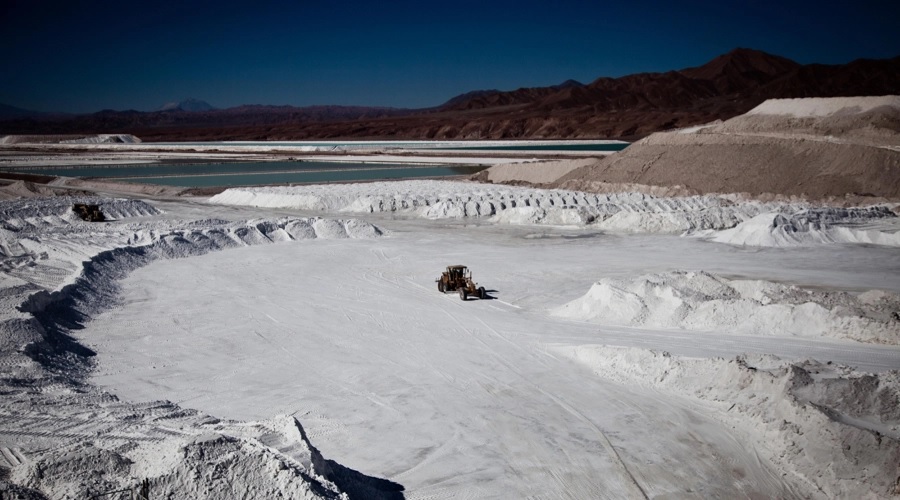RIO DE JANEIRO, BRAZIL – Mexico and Bolivia agreed to create a technical team and a scientific committee exploring international cooperation projects to exploit, produce, and process lithium.
“Establish a productive dialogue that will allow the execution of international cooperation projects for development in the exploitation, production, and processing of lithium, for the benefit of the peoples of Mexico and Bolivia,” reveals the Letter of Intent regarding cooperation between the Mexican and Bolivian governments.
Both nations have significant lithium reserves worldwide, whose synergy will promote the conditions for integral development, generate jobs and guarantee the well-being of the population and its participation and incorporation in the economic development of both societies, according to the document in possession of Forbes Mexico.

The Letter of Intent signed by Marcelo Ebrard Casaubon, Secretary of Foreign Affairs (SRE), and Rogelio Mayta Mayta, Minister of Foreign Affairs of Bolivia, opens a window of opportunity to blast the lithium industry.
Bolivia has 21 million tons of lithium reserves, followed by Argentina with 19.3 million tons of the so-called “white gold,” and Chile is in third place with more than 9.6 million tons of the metal, according to the Latin American Strategic Center for Geopolitics (Celag).
The United States has more than 7.9 million tons of lithium reserves, Australia has 6.4 million tons of white gold, and China has more than 5.1 million tons of this raw material for electric car batteries and the manufacture of fertilizers.
Canada has more than 2.9 million tons of lithium reserves, Germany has 2.7 million tons, and Mexico has 1.7 million tons.
The price of lithium has been rising since 2021 in the face of increased demand for this metal for battery production. According to data from Fast Markets, the price of lithium hydroxide has increased by 157.85% so far this year.
Lithium for industry is alloyed with different types of metals for different functions, including the production of batteries. For example, lithium is alloyed with aluminum and used in aircraft, high-speed trains, and bicycle frames, magnesium-lithium is used for shielding, lithium oxide is used in specialty glass, lithium chloride in air conditioning and industrial drying systems, lithium stearate is used as a multi-purpose lubricant, lithium carbonate is used in pharmaceuticals, and lithium hydride is used as a hydrogen storage medium for use as a fuel.
On March 24, 2021, Luis Alberto Arce Catacora, President of Bolivia, agreed on commitments with Andrés Manuel López Obrador, especially the interest in promoting cooperation projects in the lithium industry.
The agreements reached between the Ministries of Foreign Affairs of Mexico and Bolivia include appointing a technical team to explore areas of interest in lithium cooperation.
Other agreed actions are “to promote the executive actions that correspond to the development and achievement of the projects that may derive from this Letter of Intent, promoting the principles of South-South relations, which characterize Mexico-Bolivia cooperation,” adds the document.
Marcelo Ebrard Casaubo and Rogelio Mayta Mayta agreed to form a scientific committee to strengthen the capacities of professionals and specialists and determine the bodies in charge of the coordination of the Letter of Intent.
The Mexican government left the Mexican Agency of International Cooperation for Development (Amexcid) in charge, and on the side of Luis Arce’s government, the public company Yacimientos de Litio Bolivianos.
Currently, the lithium industry in Bolivia has as normative bases its political constitution of the State, the Mining and Metallurgy Law, and the Law of Creation of the Company Yacimientos de Litio Bolivianos.
Bolivian laws determined that there is no concession regime in the Bolivian salt flats, and the extractive phase is 100% in charge of the State through Yacimientos de Litio Bolivianos.
Yacimientos de Litio Bolivianos may become a partner for industrialization and waste processing processes, keeping at least 51% of the participation since lithium is a strategic resource for the South American nation.
With information from Forbes

